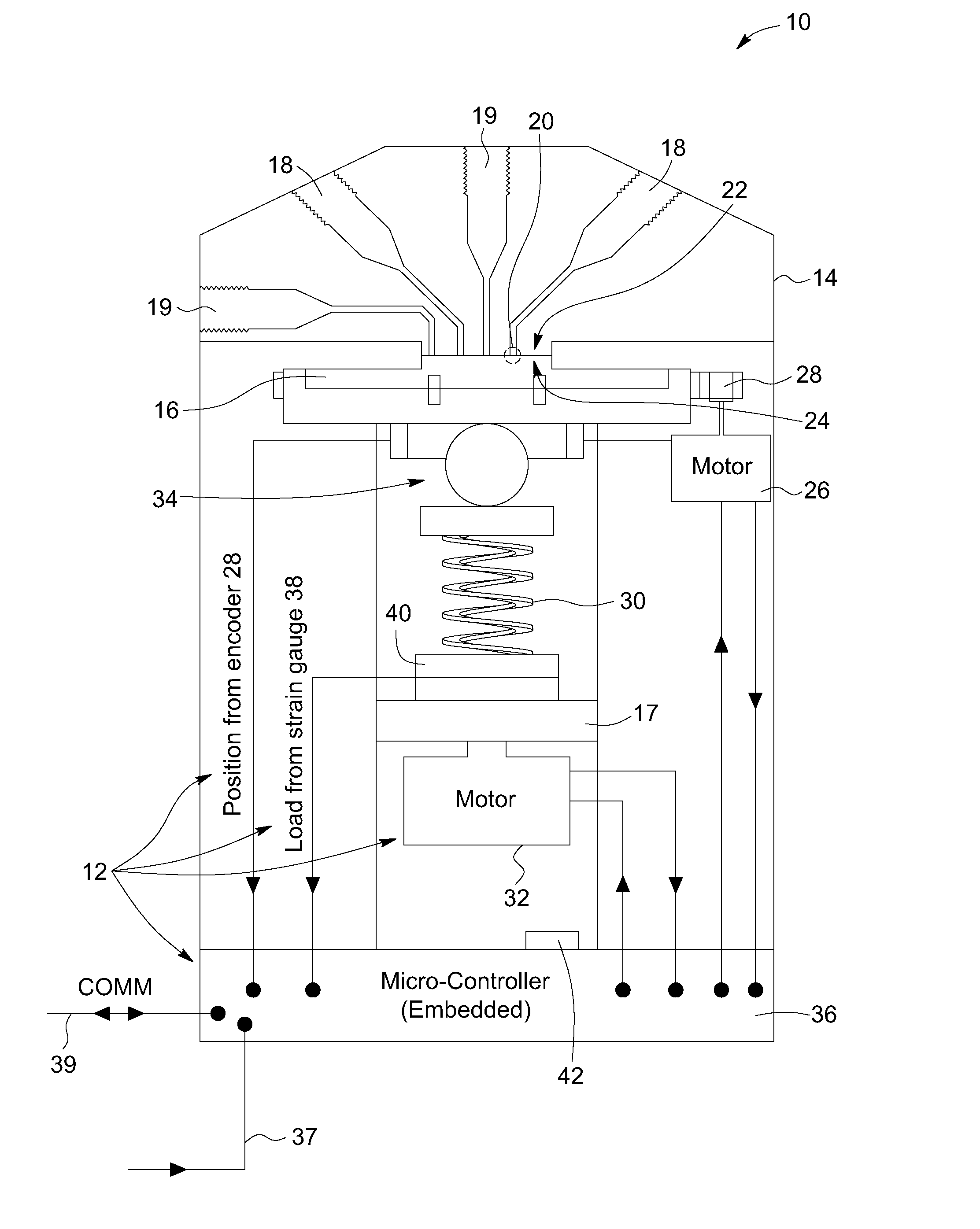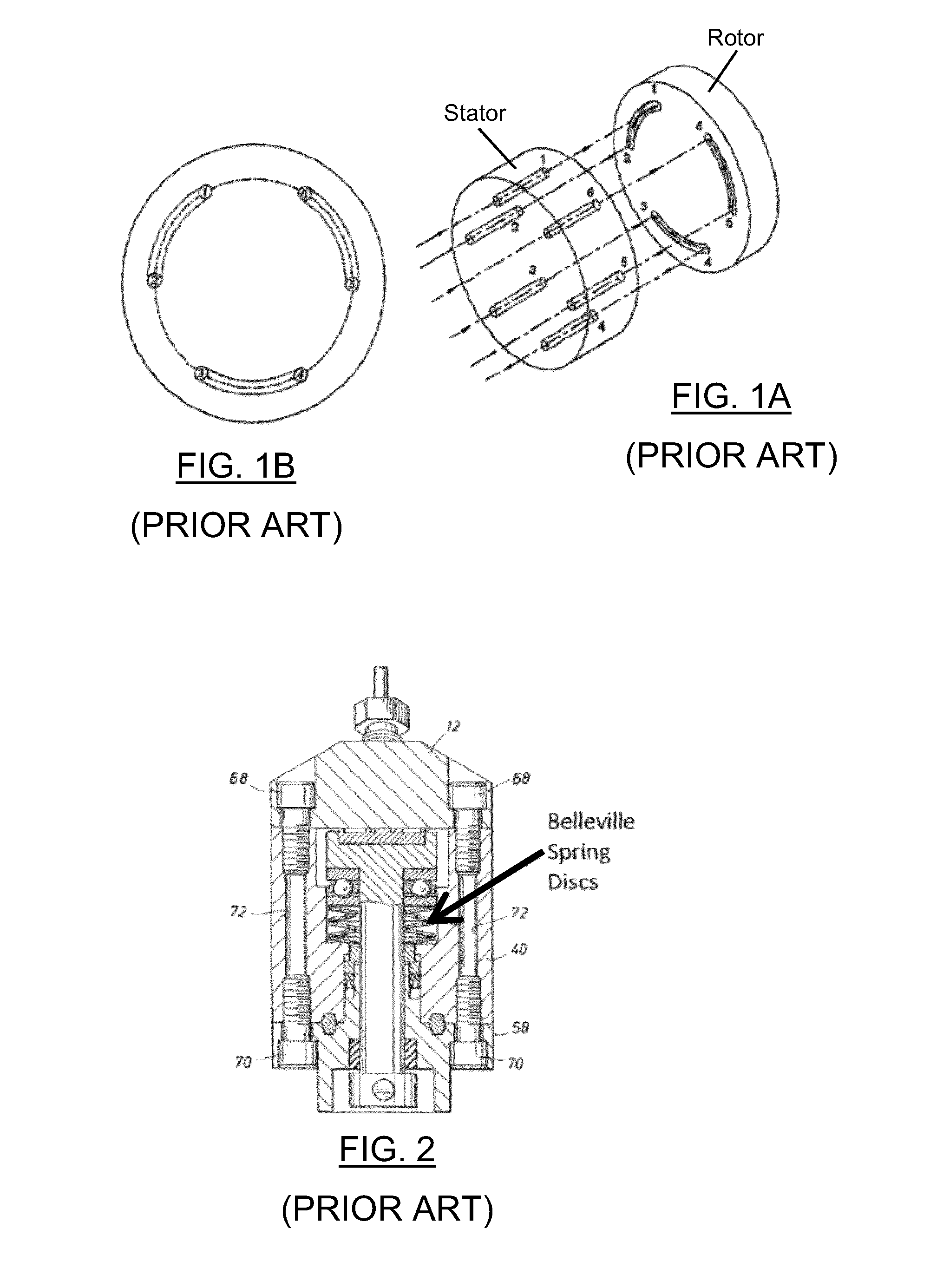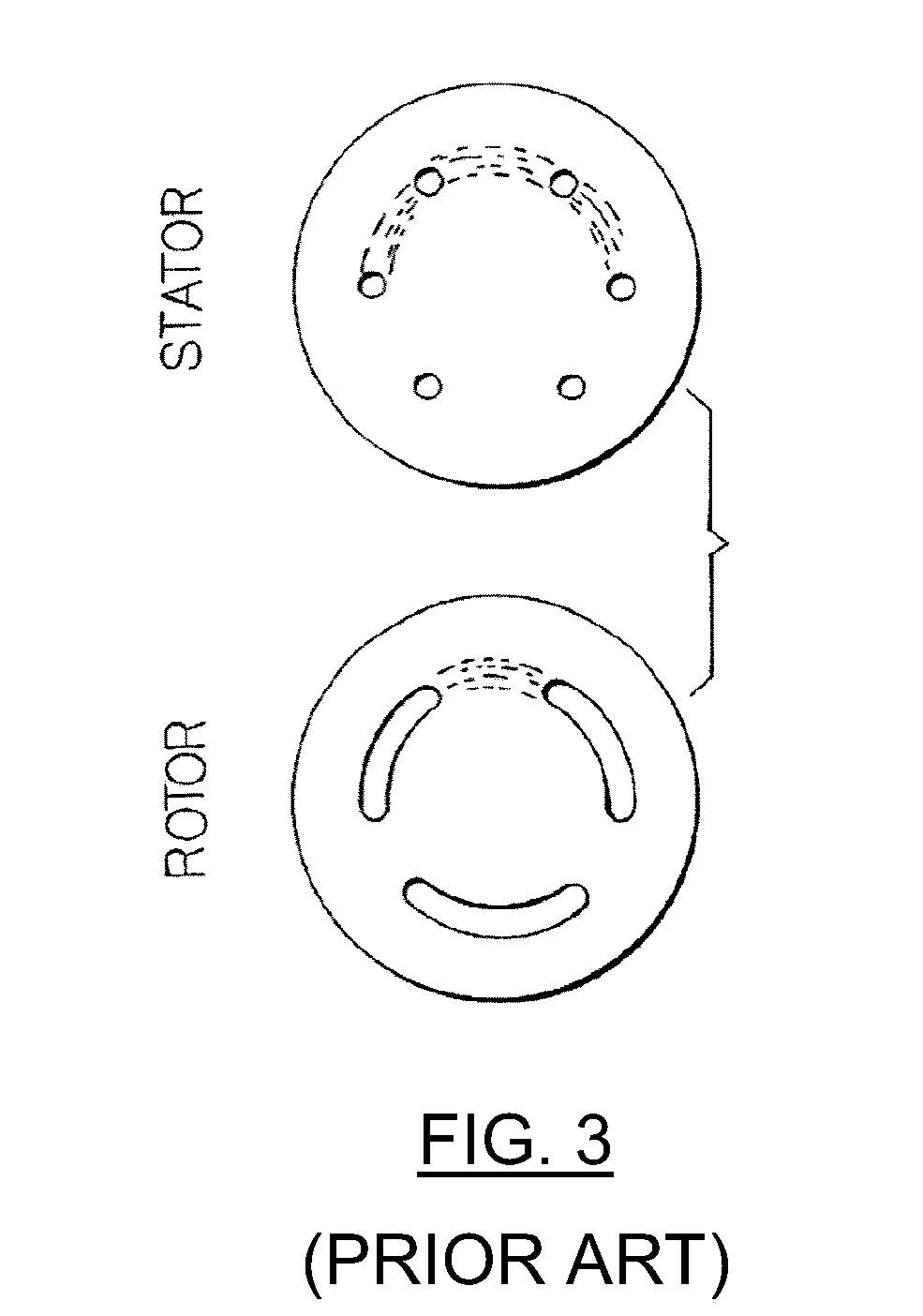Valve With a Loading Varying Mechanism, and Method of Operating the Same
a technology of varying mechanism and valve element, which is applied in the field of valves, can solve the problems of short life of such valves, increased wear and particle generation, and friction and resultant wear, and achieve the effects of reducing friction between the sealing surface of the valve element and the stationary body of the valve, reducing wear and particle generation, and reducing friction between the sealing surfa
- Summary
- Abstract
- Description
- Claims
- Application Information
AI Technical Summary
Benefits of technology
Problems solved by technology
Method used
Image
Examples
Embodiment Construction
[0054]Within the following description, similar features of the drawings have been given similar reference numerals. To preserve the clarity of the drawings, some reference numerals have been omitted when they were already identified in a preceding figure.
[0055]The implementations described below are given by way of example only and the various characteristics and particularities thereof should not be considered as being limitative of the scope of the present invention. Unless otherwise indicated, positional descriptions such as “top”, “bottom” and the like should be taken in the context of the figures and should not be considered as being limitative.
[0056]With reference to FIG. 4, a first implementation of a valve according to the invention is shown. The valve 10 includes a stationary body 14 provided with fluid passages 18 and 19, for circulating fluid therein at a fluid pressure. The fluid passages can also be referred to as channels. The fluid passages include process fluid pass...
PUM
 Login to View More
Login to View More Abstract
Description
Claims
Application Information
 Login to View More
Login to View More - R&D
- Intellectual Property
- Life Sciences
- Materials
- Tech Scout
- Unparalleled Data Quality
- Higher Quality Content
- 60% Fewer Hallucinations
Browse by: Latest US Patents, China's latest patents, Technical Efficacy Thesaurus, Application Domain, Technology Topic, Popular Technical Reports.
© 2025 PatSnap. All rights reserved.Legal|Privacy policy|Modern Slavery Act Transparency Statement|Sitemap|About US| Contact US: help@patsnap.com



